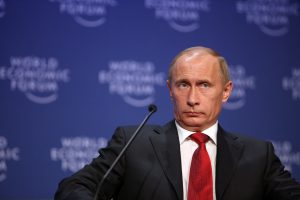On 18 August in Washington, Donald Trump had to deal – at least for the time being – with seven European leaders and accept the idea of security guarantees for Ukraine.
The event was absolutely unprecedented. These seven Europeans did not go there on Monday 18 August to consult with the United States, let alone to support it.
They had accompanied Volodymyr Zelensky to stand up to Donald Trump, because three days after he had so warmly welcomed Vladimir Putin in Anchorage, everything led them to fear that he wanted Ukraine to accept the surrender that the Kremlin was demanding.
They were not there as allies of the United States, but of Ukraine, and this was, yes, unprecedented, because when Europeans, led by France, tried to prevent the United States from embarking on its Iraqi adventure in 2003, the European Union was fractured.
Led by Great Britain, half of the Union had stood alongside the Americans, but today it is quite different. Brexit or not, London and Paris are at the forefront of Europe’s double battle against the Kremlin’s imperial nostalgia and against the Trumpian temptation to come to terms with Russia at the expense of Ukraine and the whole of Europe.
From the Baltic to the Mediterranean, from Ireland to Donbass, Europe is more united than it has ever been, even more than under Rome or Charlemagne, because in the north and south, east and west, the Union’s neighbouring regions are standing firmly behind it.
This unity among Europeans guarantees nothing, but it has changed the game. Without this unity, Americans and Europeans would not be working right now on security guarantees that could be given to Kyiv. If Europe were not united, Russia would not be accusing the Union of wanting to torpedo the prospects for peace that Donald Trump and Vladimir Putin claim to have opened up in Anchorage.
Suddenly concerned, Russia recognises in a united Europe the determination to become a player on the international stage, a political power that could one day, alongside China and the United States, be one of the three superpowers of this century.
All right! The work is not done yet, far from it.The Union will not have its own defence force ready for another ten years or so. It still needs the American umbrella so much that it is condemned to caution when faced with the trade war declared on it by Donald Trump. Above all, European unity remains at the mercy of the far right, which is supported by both the Kremlin and the White House.
All it would take is for one of them to come to power, in London or Paris, to compromise Europe’s political assertiveness.
Scepticism is not unfounded, but before continuing to mechanically mock ‘European impotence’, perhaps we should open our eyes a little.
With its member states, the Union constitutes a market of nearly 600 million people that neither the United States nor China could afford to lose. Including Hungary, the Union now intends to equip itself with a common defence, which is starting to raise funds through increased military spending by its member states and the facilities it grants itself by circumventing its treaties.
Finally, the idea that French nuclear power could replace the American umbrella for all or part of Europe is gaining ground, both in Berlin and Warsaw.Of course, everything remains unbearably slow and timid. The Union continues to import far too many of its weapons from the United States, as several of its capitals fear that buying European will push the Americans even further away from them. Caught between its desire for autonomy and its fear of depriving itself of US protection when it does not yet have its own defence, Europe is in limbo, but it understood, from Donald Trump’s first term in office, that it would now have to rely on its own strengths and, when faced with Russian aggression, it immediately stood shoulder to shoulder with Ukraine, of which it is now the main supporter.
Although it was unprepared for this, the EU is rising to one challenge after another. Last March, in opposition to Donald Trump, who had just expelled Volodymyr Zelensky from the Oval Office, it organised a ‘coalition of the willing’, a group of countries refusing to allow Vladimir Putin to prevail with the consent of the United States.
On France’s proposal, the EU had previously created the European Political Community to bring together all those European countries that wish to join or act with it. Since 2022, this Community has been heralding a new form of European unity based on different degrees of integration. It was this initiative that accelerated the rapprochement between Britain and the Union on security issues, and it was thanks to this rapprochement that Paris and London were able to organise the Coalition of the Willing so quickly and bring together countries that support it without having formally joined it.
From Australia to Canada, from Norway to Japan, the EU is now at the heart of a network of democratic countries concerned about developments in the United States. It was on the strength of this convergence that the Finnish and French presidents, the NATO secretary general, the German chancellor and the British prime minister, the president of the European Commission and the president of the Italian Council of Ministers spoke out on 18 August. It is because these seven Europeans were speaking on behalf of a continent whose influence is growing as the United States retreats and slides towards authoritarianism that Donald Trump could neither refuse to receive them nor call on them to bow down to the Russian president.
At least for the time being, Donald Trump had to deal with them and accept the idea of security guarantees. That Monday, a new power, Europe, won its first battle, and it is high time to recognise and encourage its assertion, because without it, the future does not look bright.
Photo: ©Number 10 – UK Prime Minister




